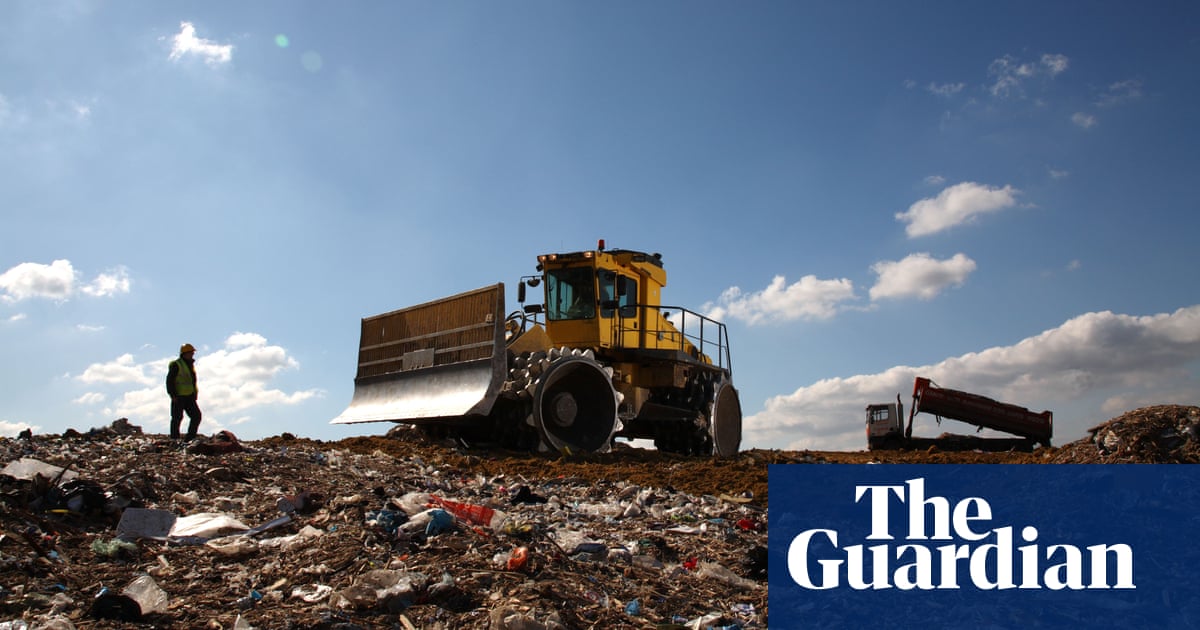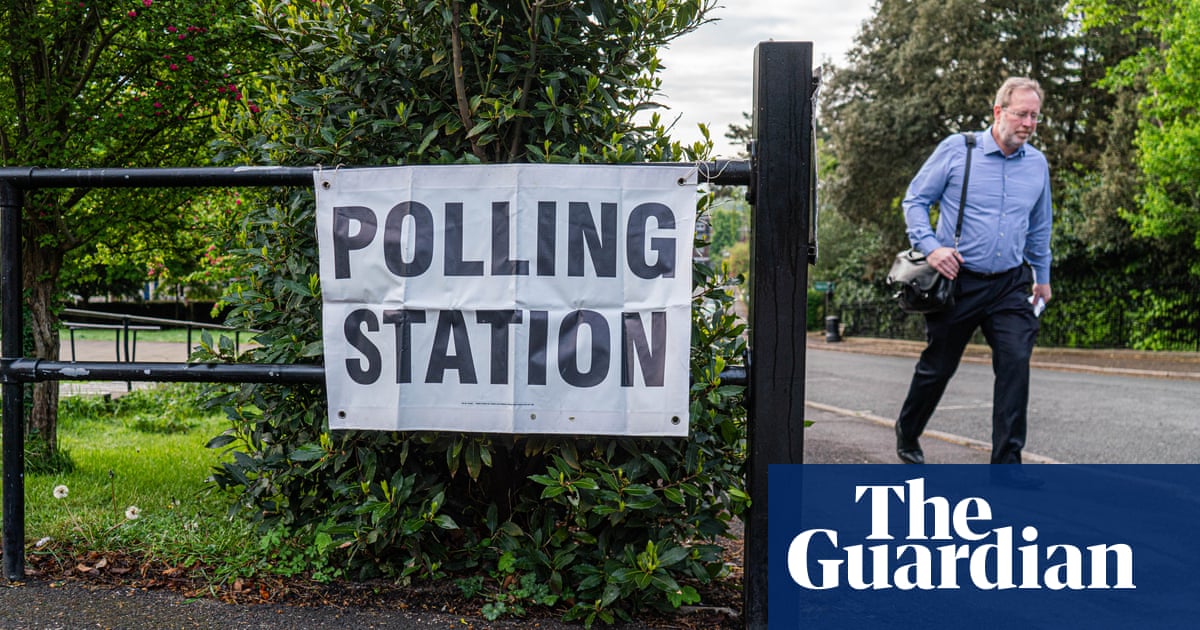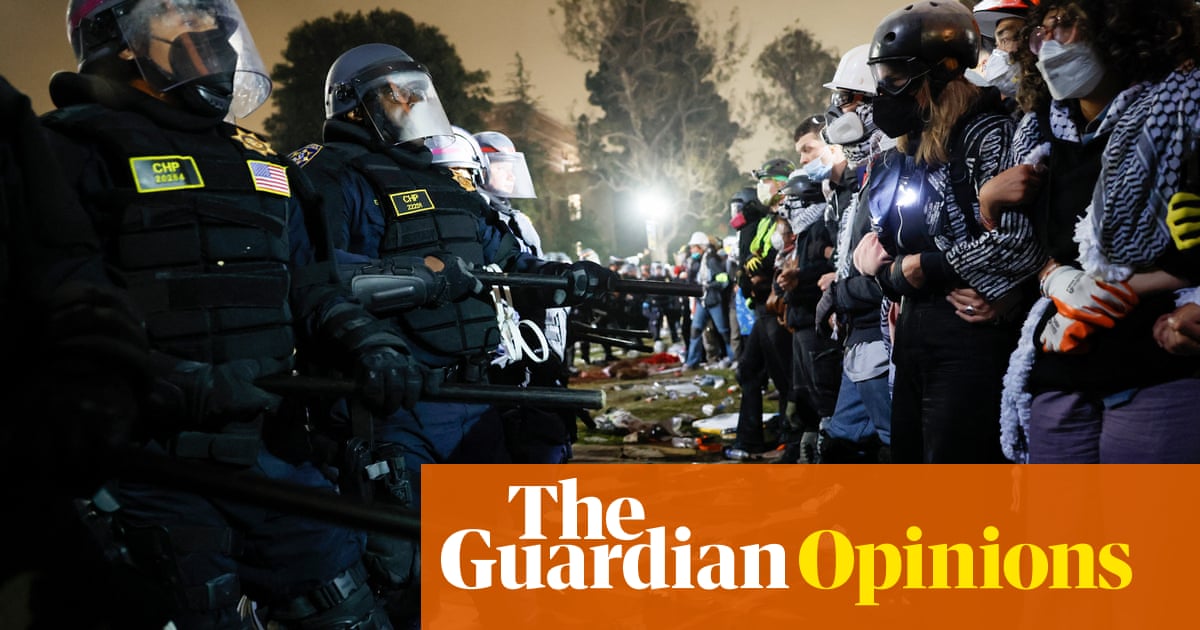Key events Show key events only Please turn on JavaScript to use this feature
What do the polls say?

Jon Henley
Europe correspondent
There seems little doubt that, barring any major surprises, the conservative Merz will be Germany’s next chancellor. The CDU and its Bavarian sister party, the Christian Social Union (CSU), have been consistently and comfortably ahead in the polls on about 30%, with the Alternative für Deutschland second on 20-21%.
There is no apparent route to power for the far-right AfD since all other parties have ruled out working with a party they consider undemocratic.
According to the Guardian’s poll tracker, the SPD are third on about 15% and the Greens fourth on 13%. The leftwing Die Linke are predicted to clear the 5% hurdle and expected to secure around 7-8% but it looks far from certain that the “conservative-left” Sahra Wagenknecht Alliance (BSW) or liberal FDP will do the same.
Depending on whether that trio (plus the local associations of Free Voters (FW), who could do well in Bavaria) score 5% or more, or qualify via the three-seat exception, the next assembly could have four parties or eight, the most in modern history.
That makes the distribution of seats in the new parliament very hard to predict. However, most analysts see the most likely outcome being a CDU-led coalition government including either Scholz’s Social Democrats or the Greens, or maybe both.

Jakub Krupa
in Berlin
In terms of issues that Germans care about, immigration (37%) continues to dominate discussions, topping last month’s ARD-Deutschlandtrend poll by infratest dimap, just ahead the state of the economy (34%). The prospect of an armed conflict and the concern about Germany’s foreign policy was third, at 14%.
The public opinion was focused on immigration after a spate of attacks with perpetrators of migrant background, including in Magdeburg in December (killing five, and injuring more than 200), Aschaffenburg in January (two dead), Munich in February (two dead).
The issue has further polarised the debate after a controversial move by opposition leader Friedrich Merz, who passed a non-binding motion on tightening immigration rules with the support of the far-right Alternative für Deutschland, breaking the so-called firewall against the extreme parties.
On Friday night, just before the election weekend, German police arrested a 19-year-old Syrian man suspected in a stabbing antisemitic attack at Berlin’s Holocaust memorial that left a Spanish tourist seriously injured.
Earlier on Friday, an 18-year-old ethnic Chechen was arrested on suspicion of planning an attack on the Israeli embassy in Berlin, Bild reported.

Climate change (13%), inequality (11%), and education (8%) were the other three big topics.
Who are the key players and what have they promised?

Jon Henley
Europe correspondent
The Christian Democratic Union and Christian Social Union in Bavaria (CDU/CSU) frontrunners, led by wealthy former asset manager Friedrich Merz, are proposing to cut taxes, tighten welfare eligibility, slash immigration, process asylum claims abroad, and boost aid to Ukraine.
The far-right Alternative für Deutschland (AfD) has endorsed the concept of “re-migration”, threatening the mass deportation of migrants. It also pledges a return to the deutschmark, military conscription, and sweeping education reforms.
Scholz’s Social Democratic party (SPD) aims to support low-income families by cutting VAT on food and tax for low earners and raising the minimum wage. It also aims to curb immigration and proposes a €100bn infrastructure investment fund, but is more cautious on Ukraine. Scholz has refused to send long-range Taurus missiles to Kyiv, defending the decision as a “prudent” anti-escalation measure.
The Greens have announced plans for a “billionaire tax” to help poorer households through the green transition. They are also in favour of increasing the minimum wage and are pushing for incentives to speed up the switch to renewable energy.


Jakub Krupa
in Berlin
It is very unusual for Germany to hold snap elections. It is only the fourth time in the country’s postwar history; the last time was in 2005.
But the collapse of Scholz’s three-way government late last year meant there was no other obvious way to resolve the political crisis and provide the country with a stable leadership it needs to face the challenges.
Why does the German election matter?

Jon Henley
Europe correspondent
The three-way “traffic-light” coalition of Social Democrats (SPD), Free Democrats (FDP) and Greens ruling Germany since 2021 collapsed in November under the weight of its own ideological contradictions and the country’s economic and security challenges.
The outgoing Social Democrat chancellor, Olaf Scholz, fired his liberal finance minister, Christian Lindner, over a bitter months-long budget dispute, then called a confidence vote in parliament deliberately in order to lose it – which he duly did.
Whoever becomes chancellor will have to tackle an economy beset by high energy and labour costs, stifling bureaucracy, crumbling infrastructure and an economy that has shrunk for two consecutive years for the first time in decades.
The slowdown with trade partner China has dealt a blow to German exports, a traditional strength, while the key car industry has been slow to develop attractive electric vehicles (EVs) and now faces the threat of US tariffs under Donald Trump.
Optimists say the vote could give Germany a vital shot at investment, modernisation and renewal. Pessimists say the problems are so structural and expectations so high that the middle-of-the-road coalition that will probably emerge is doomed to disappoint.


Deborah Cole
Berlin correspondent

German voters go to the polls today but it is a different world from when the campaign began only a few weeks ago.
Nearly 60 million people are choosing a government that will have to grapple with the breakdown of the transatlantic alliance under Donald Trump and new threats to European security just as the country’s vaunted economic model is hitting the skids.
If the polls are correct, the man leading that administration will be conservative opposition chief Friedrich Merz, a corporate lawyer with a decades-long desire to be chancellor despite never serving in government. His in-tray will be staggering.
“The big expectations mirror the big challenges he’ll face from day one of his likely chancellorship,” news weekly Der Spiegel said. “An aggressive Russia, a hostile America and a Europe that is drifting apart: Merz could be tested more strongly […] than any chancellor of the postwar republic.”
That sense of looming turbulence, with the far-right Alternative für Deutschland waiting in the wings, has troubled many voters, drawing hundreds of thousands on to the streets in recent weeks in defence of democracy.
Read the scene-setter here:
Opening: Germany votes

Jakub Krupa
Guten Tag, and good day from Berlin.
Sixty million Germans choose their next government today, which will lead Europe’s largest economy through what will most likely be the most tumultuous era in decades.
Voters have to choose who will be given the task of steering Germany through an existential security crisis in Europe with Ukraine and Russia, while at the same time facing unprecedented structural challenges to the country’s economic model amid a worsening geopolitical outlook abroad, most obviously characterised by a crumbling transatlantic alliance with the new US administration of Donald Trump.

The conservative opposition chief Friedrich Merz is widely expected to score a win and get the job. But other than that, there are more questions than answers. Who will he govern with? How many parties will get into the Bundestag? Will the far-right once again see record rises in their support, and if so, what will this mean for German politics?
The polling stations have been open since 8am local time (7am GMT) and will close at 6pm local time (5pm GMT) when we should get an exit poll and a first indication of what awaits Germany next.
We will bring you all the key updates throughout the day, helping you to understand the context of the vote, summarising the main themes of the campaign, and bringing first-hand reports from on the ground in Berlin.

.png) 2 months ago
30
2 months ago
30













































